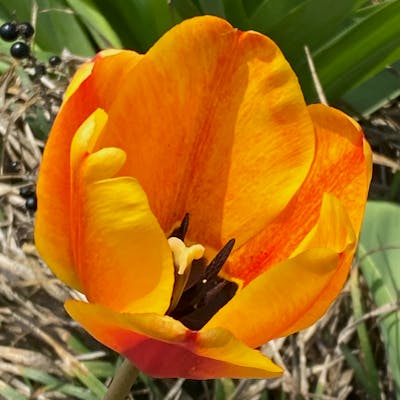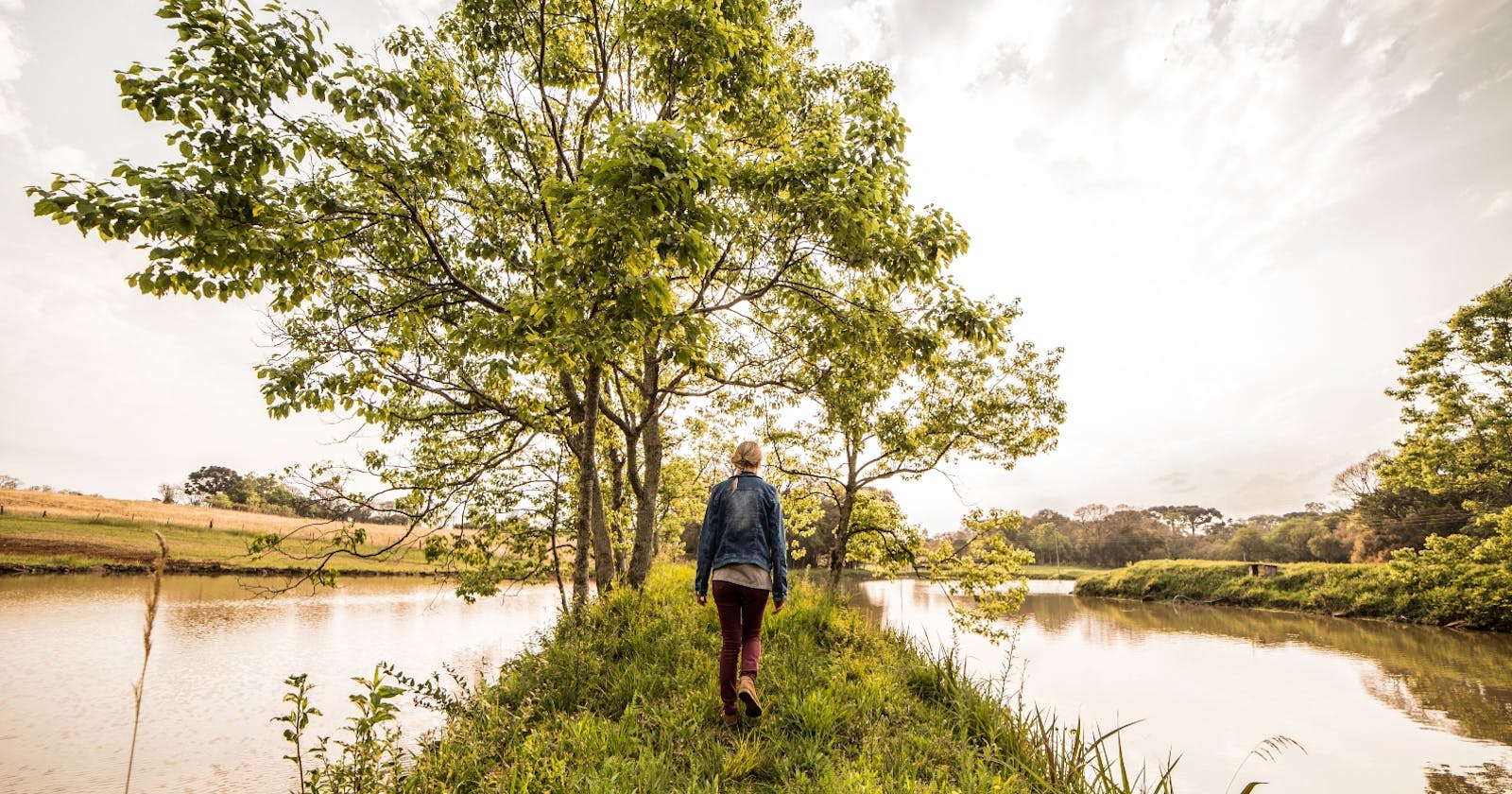In my shelter-at-home days in March of 2020, before the WHO had even announced that COVID-19 was officially a pandemic, I got in the habit of taking walks to distract myself.
One Sunday I wandered a couple of blocks from my apartment, and turned onto a one-way street that branched off the main street right at the Primitive Baptist Church. The church took up two lots, and its armadillo siding was fading so badly I’d hesitate to say what color it was originally—something in the yellow family? The houses beyond it were mostly well-kept, though, and awfully cute.
A few houses down, I spied a little lending library – one of those tiny glass-doored houses for our papery friends. I have always had eerily good luck with books: the right ones for the occasion seem to be magnetically drawn toward me, or I to them. Banking on this, I eagerly grabbed the knob and opened the glass door.
Sandwiched between some YA fiction and a thick Terry Pratchett novel was a slender volume called Inner Gold, by Robert A. Johnson. I may have been deceived by its physical slightness into thinking it would be light reading at what was shaping up to be a heavy time. I carried it home without much thought, noting the pretty sunset on the cover and a quote there by Marion Woodman: “The healing power of Robert’s writing is palpable.” Sounded good to me.
It turned out that Johnson was a Jungian depth psychologist and a renowned lecturer, and that the book was published when he was already over 80. It focuses on the slippery business of psychological projection – how we cast our “inner gold” onto others for them to hold for us, not believing we ourselves can be so valuable and pure.
In the second chapter, called “Loneliness”, a bit of etymology that had me catching my breath:
“The word saunter comes from the Middle Ages, when we sainted or sanctified inanimate objects, and not just people. Even the cross was sainted, and so was the earth. The earth was called Saint Terrare, and so when we saunter, we are in contact with Saint Terrare, the sainted earth. Sauntering grounds and connects us. It is an important cure for loneliness.”
How wonderful that the sainted earth, our Mother earth, is always available to comfort us in our loneliness. And thank God/Goddess/the Universe, it was relatively easy to go out and saunter in Oakland, where the urban environment was not so extremely built-up as to have alienated me entirely from that holy and maternal embrace.
(If you were cooped up in New York or another big city in the early months of 2020, I hope you’ll bear with me.)
I lived back then on the second floor of a small, four-story apartment building. My new home office (formerly known as my living room) looked out onto a camellia tree with huge, generously pink blossoms, and a few calla lilies beyond that lifted their white, saucer-sized rims up like rain-catchers. All these remained ripe for the viewing and the touching--despite the fact that once the shelter in place took effect, I wouldn’t touch another person for months.
As I sat with Inner Gold, a kind of synesthesia emerged. A texture began to form around that word, saunter. It felt cushioned, deep, toothsome, mild, almost sweet.
When I saunter, I take my time, feeling my joints and muscles, feeling where the sole of my foot contacts the earth.
Truth be told (as you probably guessed), I am not sauntering at the moment; but even while I sit typing, I feel my feet on the edge of chair and feel my bottom on the seat.
You may be reading this well above the second floor, in a forty-story building. Still, as any New Age energy worker can tell you: Wherever you are, even forty stories up, you can imagine a plumb line going down and out your perineum into the ground. Or, as any physicist could tell you: Gravitation is an equal opportunity employer of matter.
Can you feel the earth beneath you? Can you rest into her sainted arms, even just for a moment? I hope you can. Or if not, why not?
And if sauntering isn’t really your style, were you able to find a balm for loneliness during the pandemic?
It feels like a paradox that the kind of intimacy I discovered through my pandemic walk did not require another human being to be present. Intimacy can be an inside job. Who knew?
And this was just one of many paradoxes that the pandemic challenged me to unpack, at a time when a deeper understanding, more of my “inner gold” - more of what is true and real - was being revealed.

